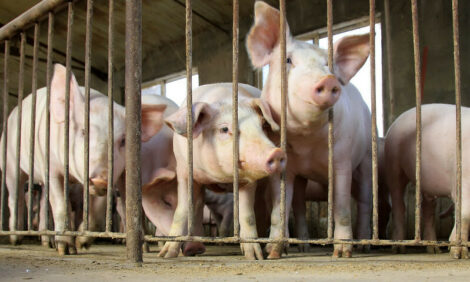



Hogs to be Culled to Stamp Out Ebola Reston Virus
PHILIPPINES - Philippine agriculture authority will start culling roughly 6,000 heads of pigs in a farm in Luzon, northern Philippines in a move to curtail the transmission of Ebola Reston virus and protect the local livestock industry.In a press briefing held Monday, Philippine Agriculture Secretary Arthur C. Yap said that they decided to cull animals in a farm in Bulacan, as test results done by various local and international agencies reveal that viral transmission continues to exist in this farm.
Blood samples collected from humans and pigs in this farm were tested positive for the Ebola strain that is proved to pose non-fatal threat to human health.
The testing was done by a joint mission comprised of Food and Agricultural Organization, the World Animal Health Organization, the World Health Organization and their local counterparts.
The investigation on Ebola strain started last month, as it is the first time in the world that Ebola-Reston virus is found to linger in swine and evidence suggests that the virus might have jumped to hog-farm workers from the sick pigs.
Mr Yap assured that the culling won't affect meat supply in the country as the number is less than one per cent of the total hog population in the Philippines. There are over 10 million hogs being raised all over the country.
The Philippines is one of the world's biggest pork consumers and pork is one of the main protein sources among Filipinos.
Mr Yap said that the joint mission recommended this "management imperative" on the back of a possible pig to human transmission of Ebola-Reston virus.
Philippine Health Secretary earlier assured the public that the Ebola-Reston so far will not cause significant illness to humans.
Five people with regular contact with hogs were found to carry the anti-bodies of Ebola-Reston virus, which means they were infected by the strain but have fully recovered without apparent syndromes.
Experts of international agencies said they will continue to study the Ebola strain to know how it can be controlled.
"We can't speculate. We don't know the source of this virus, how it's being transmitted. We're studying that," said Soe Nyunt-U, WHO Representative in the Philippines.
"We support the Bureau of Animal Industry to expand surveillance in other areas," said Kazuyuki Tsurumi, FAO Representative in the Philippines.
Further Reading
|
| - | Go to our previous news item on this story by clicking here. |






